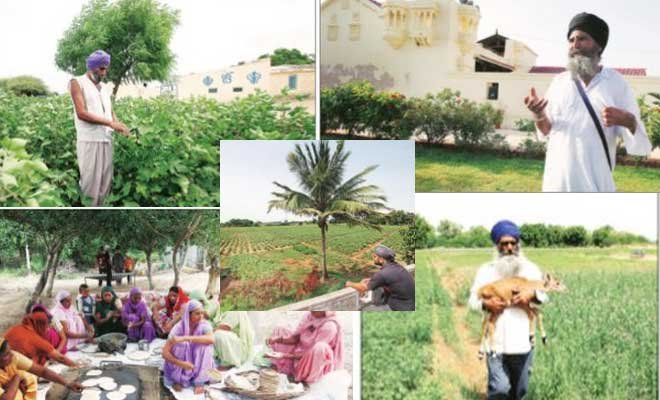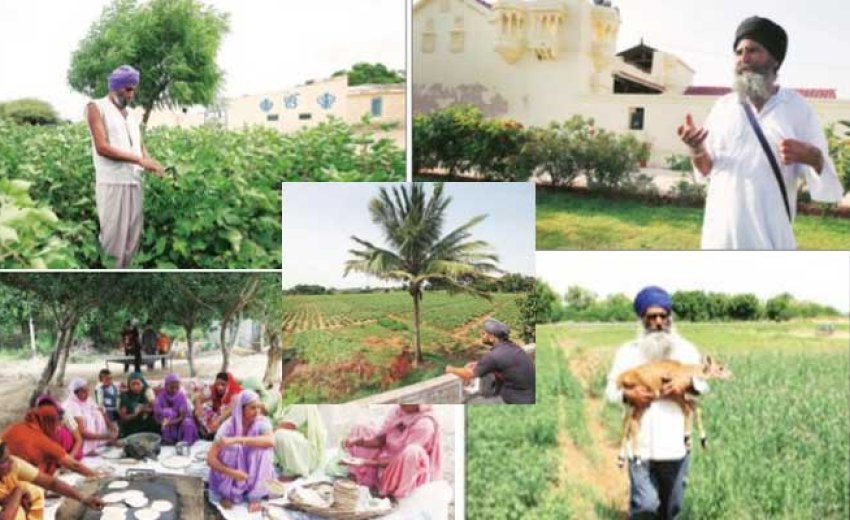
Sun Jan 05 2014: Bhajan Singh, 62, remembers the time curious villagers turned up to see a borewell his father Gopal Singh had dug up. The year was 1969 and it was the first time Sumrasar village, near Bhuj in Kutch district, had had a borewell. Few had ever seen it work, as they depended entirely on rainwater for the barely one crop they harvested a year.
Originally from Pakistan, Gopal Singh had migrated to Amritsar during Partition. He moved to Kutch, then a barren, deserted area, 400 km from Ahmedabad and the last district of Gujarat on the Indo-Pak border, four years after then prime minister Lal Bahadur Shastri appealed to countrymen to settle there. Shastri issued the appeal during the India-Pakistan war of 1965, arguing that populating the border region would be strategically advantageous for India, deterring intrusion from the other side. On the PM's call, a large group of migrants poured in, and between 1965 and 1984, the Gujarat government allotted land officially to 550 people of Punjab, Haryana and Rajasthan in the district. Of them, 390 were Sikhs. They settled across the district, not very far from the local villages, in the middle of their farms. Gopal Singh was part of the group that came from Punjab.
Nearly 45 years later, this part of Kutch, which continues to receive Sikh migrants, stands out from the rest of the district. On the strength of the legendary Sikh entrepreneurship, a green pasture rests there now, referred to as "mini Punjab".
A tremor went down this region then in 2010, when the Kutch District Collector sent them a notice that their plots were being frozen as they were outsiders and couldn't own farm land in the state, nor transfer it. Essentially, it meant they couldn't sell or purchase land any more, or get bank loans for agricultural processes, and that they could be evicted anytime.
Bhajan Singh says his father couldn't take the shock. "The saddest part of our story is that after years of turning barren land fertile, it has been frozen. My father, who retired from the Army after fighting wars with Pakistan, was alive till 2010 when the district collector's notice came. It hurt him badly. A year later, he died."
Last month, after pressure brought on by the protesting farmers, and because of the compulsions of the BJP to keep ally Akali Dal in good humour, the Narendra Modi government defreezed land records of 52 farmers. Bhajan Singh's name was not on the list. A minister has now promised that the case of those who migrated to Kutch between 1965 and 1984 would be given consideration.
Singh owns about 30 acres of land in Sumrasar, and is well known locally for his efforts to save wild animals. His father Gopal Singh was initially allotted land near Khavda village, which is close to the Pakistan border, but as the land there was not good for agriculture, he sold it a decade later and shifted to Sumrasar.
"There was no issue raised by the government then," Bhajan points out.
It was on October 22, 2010, that then district collector M Thennarasan sent notices freezing land of 784 individuals in Kutch, of whom 245 are originally from Punjab and Haryana. The rest are from Rajasthan, Maharashtra and Gujarat.
The notice, labelled 'Freezing the agriculture accounts of outsiders of Gujarat state', stated "it is instructed not to do mutation on the basis of 7/12 certificate of farmer of registered documents until the next instruction" under the Bombay Tenancy and Agricultural Land Act, 1948.
